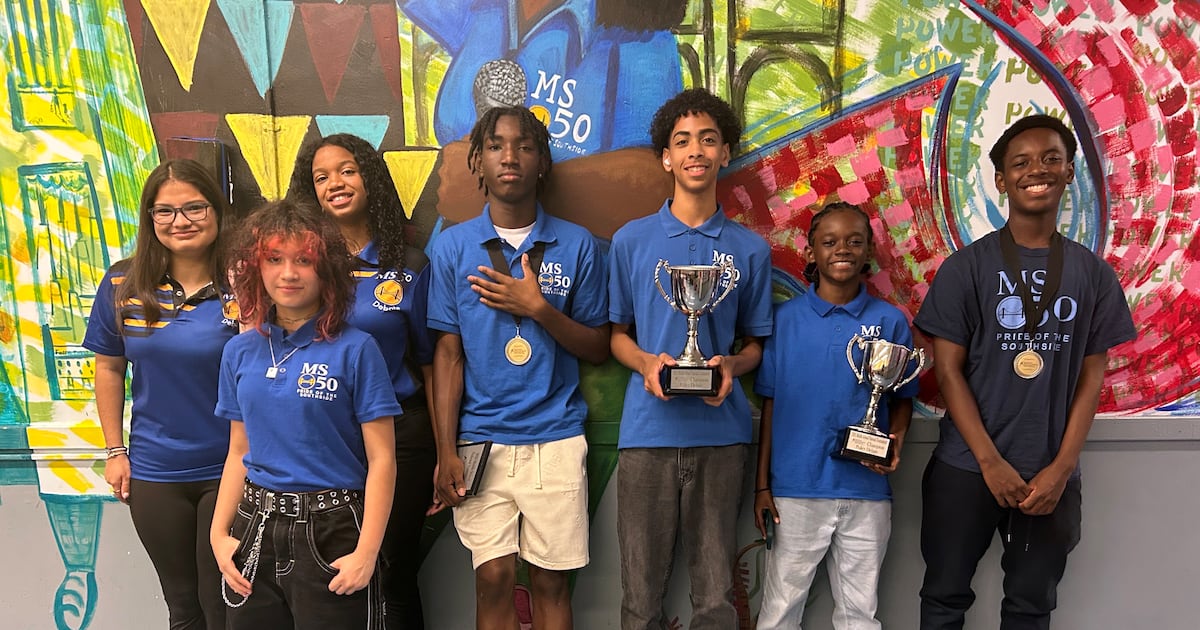
"Standing on stage in Des Moines, Iowa, in June at the awards ceremony for the nation's largest middle school debate tournament, 14-year-old Erick Williams was shocked to hear the announcement coming from the podium. He turned to his partner, Anedwin Moran, to make sure he hadn't heard wrong. The two eighth graders from M.S. 50 in Williamsburg, Brooklyn, were national champions. It was the capstone of a remarkable debate journey for Williams, Moran, and M.S. 50, which has a student poverty rate of nearly 90% and a decade ago was on the list of the most troubled schools in the city and at risk of closure."
"Since then, Principal Ben Honoroff has embraced debate as a way to transform the school's academic outcomes and reputation. M.S. 50's debate program has captured multiple citywide titles, inspired local elementary schools in the area to launch their own programs, and brought the first-ever Spanish language debaters to the National Speech and Debate Association's annual tournament. But a title at the nation's most prestigious middle school debate tournament had eluded M.S. 50 - until this year. For Honoroff, it was validation not just of the hard work and talent of the kids and staff but also of the unique way the school approaches debate."
""It's a victory for the way we are interpreting policy debate: as a way of having kids be critical about the resolution and invoke their own lived experience," he said."
Erick Williams and partner Anedwin Moran, eighth graders from M.S. 50 in Williamsburg, Brooklyn, won the national middle school debate championship. M.S. 50 serves a student body with nearly 90% poverty and was previously listed among the city's most troubled schools. Principal Ben Honoroff implemented debate to boost academic outcomes and improve the school's reputation. The debate program has won citywide titles, inspired nearby elementary schools to start programs, and produced the district's first Spanish-language competitors at the national tournament. The national title validated an inclusive approach that emphasizes students' lived experiences amid a debate culture that often favors affluent schools.
Read at Chalkbeat
Unable to calculate read time
Collection
[
|
...
]